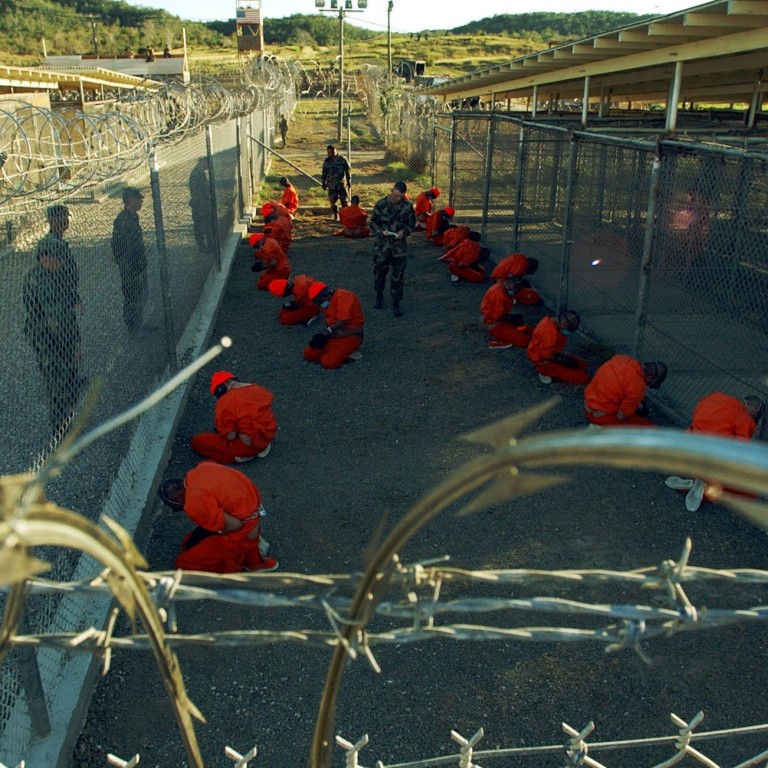
Architect of CIA interrogation programme, James Mitchell, defends use of torture against terror suspects
Architectof agency's 'enhanced interrogations' after 9/11 attacks breaks silence over US Senate report critical of tactics against terror suspects
The psychologist regarded as the architect of the CIA's "enhanced interrogation" programme has broken a seven-year silence to defend the use of torture techniques against al-Qaeda terror suspects after the 9/11 attacks.
In his first public remarks since he was linked to the programme in 2007, James Mitchell was dismissive of a US Senate intelligence committee report on CIA torture in which he features, and which is currently at the heart of an intense row between legislators and the agency.
The report found the interrogation techniques devised by Mitchell, a retired air force psychologist, and used at the Guantanamo Bay detention camp were far more brutal than disclosed at the time and did not yield useful intelligence.
These included waterboarding, stress positions, sleep deprivation, confinement in a box and being slammed into walls.
But Mitchell, who was reported to have personally waterboarded accused 9/11 mastermind Khalid Sheikh Mohammed, remained unrepentant.
"The people on the ground did the best they could with the way they understood the law at the time," he said. "You can't ask someone to put their life on the line and think and make a decision without the benefit of hindsight and then eviscerate them in the press 10 years later."
The 6,600-page, US$40 million Senate report is still secret. But a summary of its 20 conclusions and findings, obtained by McClatchy News, alluded to the role Mitchell and another psychologist under contract to the CIA, Bruce Jessen, played in the torture programme.
The committee's chairwoman, Democrat Dianne Feinstein, said the report "exposes brutality that stands in stark contrast to our values as a nation". She added: "It chronicles a stain on our history that must never again be allowed to happen."
Mitchell said: "I'm sceptical about the Senate report, because I do not believe that every analyst whose jobs and promotions depended upon it, who were professional intelligence experts, all of them lied to protect a programme? All of them were wrong? All of these [CIA] directors were wrong? All of the people who were using the intel to go get people were wrong? And 10 years later a Senate staffer was able to put it together and finally there's clarity? I am just highly sceptical that that's the truth."
While he refused to discuss specific details of the programme because he is bound by a non-disclosure agreement, he defended it in general terms as a success. "I don't get annoyed about the programme," he said. "I get annoyed the way the good parts, and the bad parts, have been glossed over and how some good parts have been vilified."
He insisted that the torture techniques he developed had produced results, and was derisive of critics of the programme, such as former FBI special agent Ali Soufan, who says standard rapport-building techniques he used in interrogations were far more effective.
Mitchell said: "You're asked to believe he [Soufan] was getting all of this great information and the CIA said, 'Well, never mind. We're not interested in that information. We're not interested in the truth. We're going to do this other thing. Why? Because we're mean?' I worked for a lot of different organisations and they really care about results."
He said the context in which the programme was developed, in the immediate aftermath of the September 11 attacks, was being ignored in the debate.
"The big fear was some sort of a radiological device … It's really easy, 13 years later, when there's been no device, when all those people who were trying to build them were either killed or captured … to come along later and say, 'I could have done it better, this stuff was illegal.' It was not illegal based on the law at the time," Mitchell said.
Steven Kleinman, an air force colonel who participated in interrogations in Iraq and who is credited with blowing the whistle on abuses taking place there, told he did not understand how Mitchell could still believe torture methods that generated false confessions could also produce "reliable, accurate and timely intelligence".

